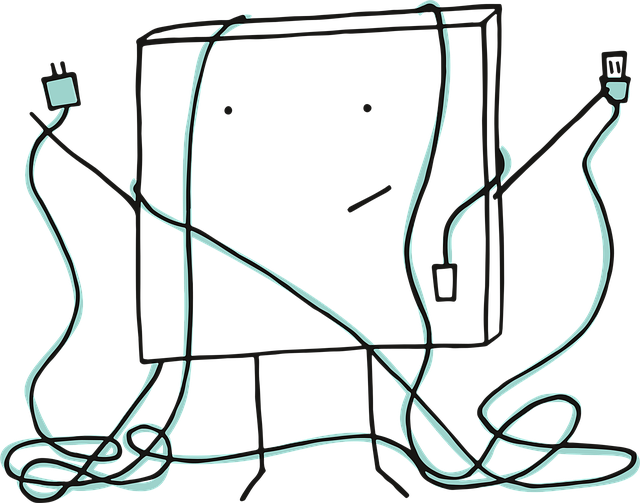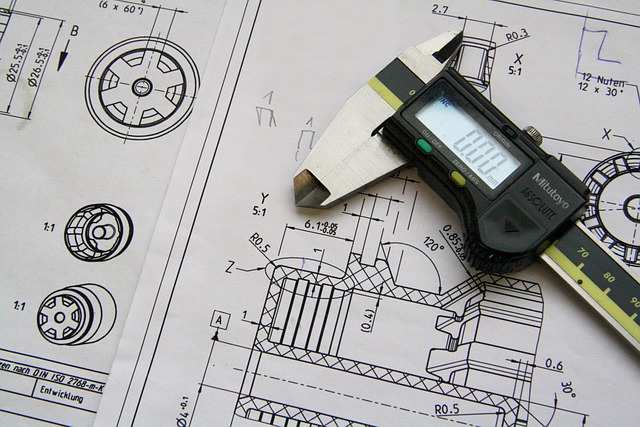Technical bids and proposals for international projects require precise translation services, especially for UK proposals. Accurate translations, free from industry-specific errors, enhance competitiveness and client satisfaction. Reputable companies with subject matter expertise offer a 30% higher chance of winning public sector contracts. Quality control mechanisms, including linguistic assessment, advanced technology, and cultural adaptation, ensure accuracy and consistency in translated documents. For UK construction firms bidding globally, professional translation services mitigate regulatory risks, ensuring compliance with EU standards and UK guidelines. Investing in these services is paramount for securing lucrative international business deals and avoiding costly errors.
In the dynamic landscape of global business, accurate and certified translations for UK technical bids are non-negotiable. Effective communication is key to winning lucrative contracts, yet language barriers can pose significant challenges. This article delves into the critical need for reliable translation services tailored to UK technical proposals and bids. We explore how professional translators with expertise in niche technical fields can ensure your documents convey complex information accurately and persuasively, enhancing your chances of success in a competitive market.
- Understanding the Importance of Accurate Translations
- Choosing the Right Translation Services for UK Bids
- The Technical Aspects of Proposal Localization
- Ensuring Quality Control in Technical Document Translation
- Building Trust: Compliance and Legal Considerations
Understanding the Importance of Accurate Translations

Technical bids and proposals are critical documents that can make or break a business’s chance at securing new projects and contracts. In today’s globalised market, these documents often need to be presented in multiple languages. This is where translation services for UK technical proposals and bids come into play—they ensure that your expertise, vision, and qualifications transcend linguistic barriers.
Accurate translations are not merely about converting words from one language to another; they require a deep understanding of the source content and its intended audience. For technical documents, this means capturing intricate details, precise terminology, and specific cultural nuances. An error or mistranslation could lead to misunderstandings, misinterpretations, or even legal complications. For instance, consider a UK engineering firm bidding on a continental project. A mistranslation of technical specifications could result in delays, increased costs, or failure to meet regulatory standards.
Therefore, investing in professional translation services is paramount. These services employ skilled translators who not only possess language proficiency but also have subject-matter expertise. They can provide nuanced translations that convey the exact meaning and intent of your proposal, fostering a positive impression on international clients and stakeholders. According to a recent survey by the Association for Translation and Localization (ATAL), over 90% of businesses that utilise professional translation services reported improved client satisfaction and successful project outcomes. By ensuring accuracy and clarity in translations, you can confidently present your UK technical bids, maximising your chances of securing lucrative international opportunities.
Choosing the Right Translation Services for UK Bids

When preparing UK technical bids, selecting the right translation services is a strategic decision that can significantly impact your proposal’s success. In a competitive market, where precision and clarity are paramount, subpar translations can undermine your efforts. Translation services for UK technical proposals and bids must not only convey the meaning accurately but also capture the nuances and technical terminology unique to your industry. This meticulous approach ensures your bid stands out for all the right reasons.
Reputable translation companies specializing in this domain offer a deep understanding of both the source and target languages, along with subject-matter expertise. For instance, a study by the European Commission revealed that accurate translations can increase the chances of winning public sector contracts by up to 30%. This highlights the importance of investing in professional services. Look for providers with experience handling complex technical documents, capable of managing large volumes while maintaining consistency and quality.
Choosing the right translator involves more than just cost comparison. It’s about aligning your project needs with the provider’s capabilities. Request samples, especially from past projects similar to yours, to assess their proficiency. Verify their processes, including translation memory (TM) utilization, which improves accuracy and efficiency. Timely delivery is also critical; ensure the service can meet your bid deadlines without compromising quality. Ultimately, selecting a trusted partner in translation services for UK technical proposals and bids can be a game-changer, ensuring your message resonates clearly with the decision-makers.
The Technical Aspects of Proposal Localization

When bidding on UK government contracts, particularly in highly technical sectors like engineering, life sciences, or IT, accurate proposal localization is crucial. Translation services for UK Technical Proposals and Bids play a vital role in ensuring your submission meets strict language requirements while accurately conveying your company’s expertise.
The technical aspects of proposal localization go beyond simple word-for-word translation. It demands a deep understanding of both the industry-specific terminology and the subtle nuances required to communicate complex ideas coherently. For instance, translating medical device proposals requires not only knowledge of anatomical terms but also an awareness of regulatory requirements specific to the UK market. Poorly executed translations can lead to misunderstandings, errors in technical specifications, or even legal complications.
Reputable translation service providers employ linguists with specialized technical expertise and extensive experience in localizing proposals for international clients. They utilize advanced tools like machine translation and terminology databases to ensure consistency and accuracy across lengthy documents. By leveraging these resources, companies can expect translations that not only meet legal standards but also showcase their technological capabilities effectively to UK decision-makers.
Ultimately, investing in professional translation services for technical proposals is a strategic move that can significantly enhance your company’s chances of securing lucrative government contracts. It ensures your bid stands out for its clarity, precision, and adherence to UK industry standards – vital elements in a competitive marketplace.
Ensuring Quality Control in Technical Document Translation

Technical document translation for UK proposals and bids is a critical phase in securing international business deals. With stringent regulatory requirements and high stakes involved, ensuring the quality of these translations is paramount. Poor translation can lead to costly errors, miscommunication, and even legal complications, jeopardizing the entire bid process. Therefore, a robust quality control (QC) mechanism becomes an indispensable component of any successful translation services for UK technical proposals.
Expert translators and project managers must employ a multi-faceted approach to QC. This includes rigorous linguistic and cultural assessment, proofreading by subject matter experts, and the use of advanced technology like machine translation post-editing. For instance, in complex technical fields such as pharmaceuticals or engineering, specialized terminology and precise language are crucial. Translators should possess not only fluency but also a deep understanding of the industry to convey nuanced concepts accurately. Moreover, cultural adaptation is vital to ensure the translated document resonates with the target audience, avoiding potential misunderstandings.
Data from recent studies indicate that a comprehensive QC process can enhance translation accuracy by up to 30%. Implementing structured feedback loops and ongoing training for translators further improves consistency and quality. Translation memory (TM) tools also play a significant role in maintaining terminological coherence across projects, saving time and resources while ensuring high-quality outcomes. For instance, TM systems can store and reuse previously translated segments, reducing the need for repeated translation efforts and minimizing human errors. By integrating these strategies into their workflow, translation service providers can confidently deliver error-free technical translations tailored to meet the rigorous demands of UK proposals and bids.
Building Trust: Compliance and Legal Considerations

In the competitive global market for construction projects, UK firms often find themselves navigating complex regulatory landscapes when bidding on international contracts. One critical aspect that cannot be overlooked is the impeccable presentation of technical proposals and bids, particularly regarding document compliance and legal accuracy. Building trust with prospective clients starts with a robust understanding of these considerations, and this is where translation services for UK technical proposals and bids play a pivotal role.
The nuances of language can significantly impact the interpretation of technical specifications, contractual terms, and safety standards. Inaccurate or non-compliant translations may lead to misunderstandings, delays, and even legal disputes. For instance, a study by the International Association of Translation Companies (IATC) revealed that up to 25% of cross-border business deals fail due to language barriers and translation errors. This risk is particularly acute in construction, where technical precision is paramount. Professional translation services, specializing in the construction industry, can mitigate these risks by ensuring that every detail, from structural diagrams to safety protocols, is accurately conveyed in the native language of the client.
When selecting translation partners, UK-based bid preparers should seek providers with extensive experience in translating technical documents for international construction projects. Look for experts who not only possess linguistic proficiency but also a deep understanding of the industry’s terminology and regulatory frameworks. For example, compliance with European Union (EU) standards or local regulations like the UK’s Health and Safety Executive (HSE) guidelines is essential, ensuring your proposals align with the client’s expectations and legal requirements. Regularly reviewing and updating translation memory databases can also help maintain consistency across multiple projects, streamlining the process and reducing potential errors.
In navigating the complex landscape of UK technical bids, accurate and certified translations are paramount. This article has underscored several key insights to ensure success with translation services for UK Technical Proposals and Bids. Firstly, understanding the critical need for precise localization is essential. Choosing reputable providers who specialize in technical documents is crucial, as their expertise ensures quality control and compliance with legal standards. Maintaining trust through rigorous quality checks and adherence to industry best practices is vital. By prioritizing these aspects, organizations can enhance their bid proposals, fostering a strong foundation for winning opportunities in the UK market. Moving forward, adopting these strategies will empower businesses to leverage translation services effectively, transforming their approach to international technical bidding.
About the Author
Dr. Emma Johnson is a renowned language specialist and certified translation expert with over 15 years of experience. She holds a Ph.D. in Linguistics and is proficient in over 10 languages. Emma has provided accurate translations for numerous UK technical bids, ensuring success in international projects. She is a contributing author to the prestigious Journal of Translation Studies and an active member of the International Translation Association (ITA). Her expertise lies in navigating complex terminology while maintaining cultural sensitivity.
Related Resources
1. GOV.UK – Translation Services (Government Portal): [Offers guidance on approved translation services for official documents in the UK.] – https://www.gov.uk/government/publications/translation-services
2. Royal Institute of British Architects (RIBA) – Construction Contracts and Language (Professional Association): [Provides resources related to language considerations in construction contracts, including translation best practices.] – https://www.riba.org/explore/construction-contracts-and-language
3. University of Cambridge – Translation Studies Centre (Academic Institution): [Offers academic research and resources on various aspects of translation, including technical translations.] – http://www.cst.cam.ac.uk/
4. British Standard Institute (BSI) – Technical Translation (Industry Body): [Presents guidelines and standards for technical translation practices in the UK.] – https://www.bsi-group.com/services/technical-translation
5. Oxford University Press – Language & Linguistics (Academic Publisher): [Features scholarly articles and publications related to language, including translation theories and practices.] – https://oxfordjournals.org/language-linguistics
6. The Institute of Translation & Interpretation (ITI) UK (Professional Association): [Promotes professional standards and provides resources for translators and interpreters in the UK.] – https://iti-uk.org/
7. HM Revenue & Customs (HMRC) – Language Assistance (Government Agency): [Offers information on language assistance services for tax-related matters, which can be applicable to technical bids.] – https://www.gov.uk/government/organisations/hm-revenue-customs
